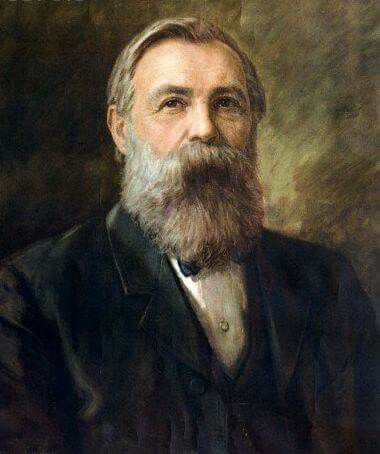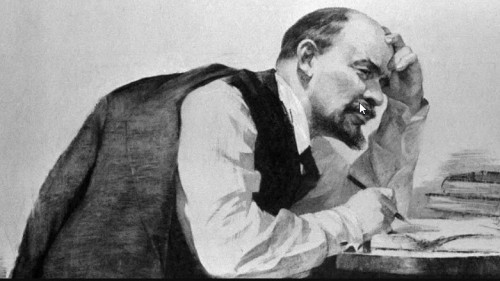The International Conference on Marxism that is organised yearly the School of Marxism of Peking University this year, due to the COVID-19 epidemic, goes online. To commemorate the 200 years from the birth of F.Engels and the 150 years from the birth of V.I.Lenin a Special Session is organised on Saturday 28-11-2020. In this session I will give a lecture titled ‘Once again on the Alledged Differences between Engels and Marx’. The full paper has been published in the latest issue of the International Critical Thought (https://stavrosmavroudeas.wordpress.com/2020/11/09/once-again-on-the-alleged-differences-between-engels-and-marx-by-stavros-mavroudeas-international-critical-thought/) The abstract of the paper is the following. ABSTRACT F.Engels has a prominent position
Topics:
Stavros Mavroudeas considers the following as important: Uncategorized
This could be interesting, too:
tom writes The Ukraine war and Europe’s deepening march of folly
Stavros Mavroudeas writes CfP of Marxist Macroeconomic Modelling workgroup – 18th WAPE Forum, Istanbul August 6-8, 2025
Lars Pålsson Syll writes The pretence-of-knowledge syndrome
Dean Baker writes Crypto and Donald Trump’s strategic baseball card reserve


The International Conference on Marxism that is organised yearly the School of Marxism of Peking University this year, due to the COVID-19 epidemic, goes online.
To commemorate the 200 years from the birth of F.Engels and the 150 years from the birth of V.I.Lenin a Special Session is organised on Saturday 28-11-2020. In this session I will give a lecture titled ‘Once again on the Alledged Differences between Engels and Marx’.
The full paper has been published in the latest issue of the International Critical Thought (https://stavrosmavroudeas.wordpress.com/2020/11/09/once-again-on-the-alleged-differences-between-engels-and-marx-by-stavros-mavroudeas-international-critical-thought/)
The abstract of the paper is the following.
ABSTRACT
F.Engels has a prominent position in the Marxist tradition as its co-founder together with K.Marx. However, beginning from around the 1970s, Engels came under attack from both Marxist and Marxologist authors as a distorter of Marx’s thought. The first, and older, wave of these attacks took place mainly in the 1970s and 1980s and focused on philosophical and methodological issues. In a nutshell, Engels was accused of misrepresented Marx’s dialectics as a mechanistically objective method and of trying to imprison Marx’s free critical spirit in the cage of a standardised ‘system’ (e.g. McLellan (1977), Carver (1984)). This first attack had a rather ultra-leftist allure as it pronounced the supposed indeterminacy of class struggle as opposed to strict laws of motion. In the ensuing debate it was proven that, despite minor differences, Engels was consonant with Marx. The second wave of attacks emerged since the 1990s and centered more on the political economy of Marx and Engels (e.g. Heinrich (1996)). It was maintained that Engels distorted Capital by making unwarranted interventions during his editing of the book. More specifically, it is argued that he mispresented Capital as a complete book whereas it is supposed to be solely an incomplete research project. Among others, Engels is accused that he inscribed to Marx a theory of economic crisis based on the Law of the Falling Profit Rate, whereas the latter was supposedly agnostic.
This paper concentrates on this second wave of attacks on Engels’ political economic analysis. It argues that their accusations are unfounded and do injustice to the great contribution of Engels in the Marxist tradition and in the Marxist Political economy more specifically. In a nutshell, this paper shows that:
- Marx owed a lot of his practical knowledge of the workings of the capitalist economy to Engels and this practical knowledge was instrumental in the formation of his political economic analysis
- Marx and Engels political economic analysis is identical in essence
- Capital has an essential analytical continuity and unity (despite changes in its structure) and Engels’ editing reflects this faithfully
- Marx and Engels both ascribed to a theory of economic crisis based on the Law of the Falling Profit Rate
Moreover, this paper argues that there is a political dimension behind this second wave of attacks on Engels. The first wave of attacks had an ultra-leftist allure implicitly juxtaposing social movements to party work. This second wave of attacks dilutes Marxism within bourgeois heterodoxy (especially Keynesianism) and leads Marxists to become simple appendages of bourgeois politics instead of independently organize the struggle of the working class.
References
Carver T. (1984), ‘Marxism as Method’ in T.Ball & J.Farr (eds), After Marx, Cambridge: Cambridge University Press, pp.261–78.
Heinrich M. (1996), ‘Engels’ Edition of the Third Volume of Capital and Marx’s Original Manuscript’, Science & Society, 60, 4: 452–66
McLellan D. (1977), Frederick Engels, Harmondsworth: Penguin.
